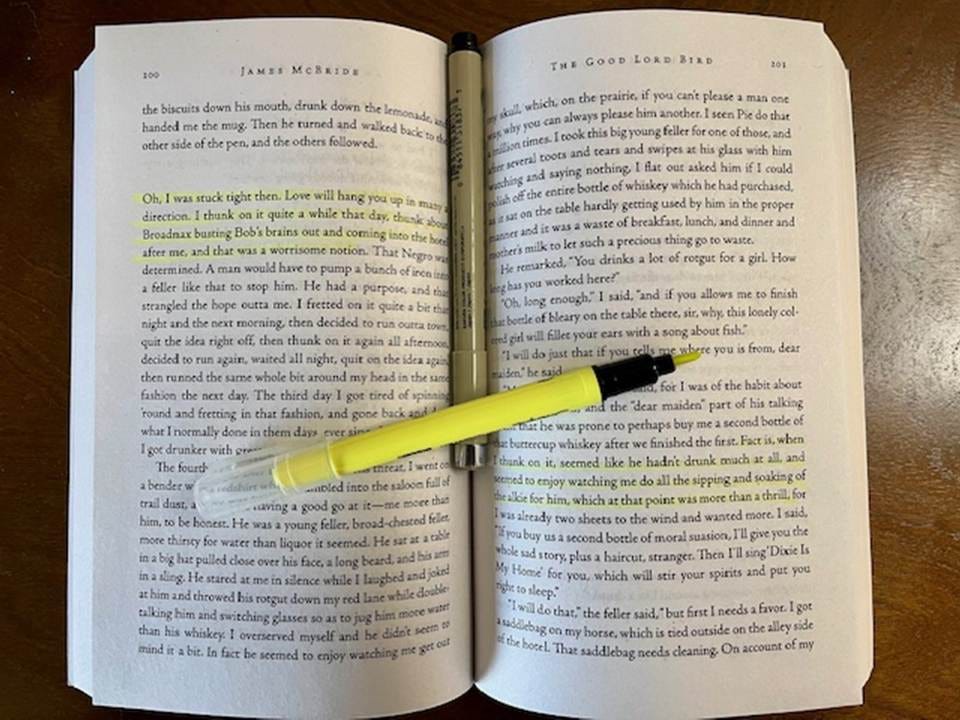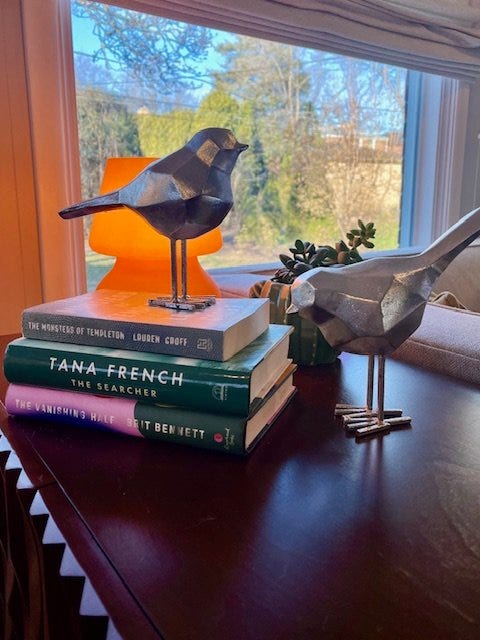Amanda Marbais explains how to “Read Like a Writer”
Amanda Marbais writes fiction, reviews, and cultural essays. Learn more about her at www.amandamarbais.com.
An MFA instructor once told me: “After you write a book, you won’t be able to read for fun. You’ll always read critically.” It felt like a dire warning or at least a disappointing fact about something I loved dearly–getting lost in a book.
For a while, this might have been true. During my MFA program–without a family or full time job–I would lay around and devour books, sometimes without getting out of my pajamas. Once I finished my thesis (a YA novel), I started teaching and had a kid. I was lucky to fit in two books a month.
Beyond a lack of time, I’m also a slow reader—let’s just get that out of the way. I’m a reader who pauses over passages and stops to think about the story. I’ve always been a little ashamed of my slow pace. Other author friends complete reading challenges of 100 plus books a year. At best, I read 50 a year.
If you are guilty of comparing yourself to other readers, let yourself off the hook. Our lives are busy. With a job, family, and my own writing, I’ve had to use technology to create more reading opportunities–listening to a book in the car and during workouts, reading a book on my phone while waiting in a doctor’s office. One small win–in our house, we’ve recently designated a reading hour, when everyone must sit down with a book. It’s gone way better than I dreamed.
But as a writer, I need to stop seeing reading as fun or a luxury. I know part of this is my protestant (more specifically Mennonite) upbringing and my desire to produce rather than consume. As a writer whose whole career-choice hinged on others’ books, reading needs to be a priority (like brushing one’s teeth or working out).
I also know now that reading slowly is reading critically. Maybe that’s what my instructor meant.
I should define critical reading, as an academic approach of close reading or reading for the details in the story, while sometimes stopping to discern how meaning is made. Outside the academic setting, I think we writers do it reflexively.
Having to defend the importance of close reading to students, has made me stop and consider it for myself. For example, last night I was reading the wonderful book The God of the Woods by Liz Moore. (You may want to stop reading here and immediately pick up this book.)
In The God of the Woods, two children from the same family go missing on protected lands, within the backdrop of a summer camp funded by an outrageously wealthy family. There’s a serial killer, a wrongly accused suspect, and a cruel rich boy at the heart of the novel’s drama. The book has everything.
I read a passage last night:
“Louisa lay on the sofa, watching the last flames of the fire die out. She closed her eyes tightly. She was trying not to cry. If she was lucky T.J. would let her forget how foolish she had been.
There were only embers left behind the grate now.
Soon the room would be full dark. Then it would be morning.”
At first, I paused on this last sentence. It landed right, but if I read it in another piece, it might make me question–is this enough? This statement “Then it would be morning” seems to be doing a lot of work. And yet, I felt very satisfied with it.
I went back to the prior passages. Louisa has a whole chapter of misadventures with intimacy, one that ends in violence. Each section concludes with Louisa trying to sleep in a strange place, swallowed by darkness. It gave the impression of the blurred, confusing experiences we have in our young adulthood. There’s a bit of disorientation and a fair amount of danger. In this last scene, Louisa has made a pass at T.J. that was rebuffed. This is the most peaceful of section endings. But it’s the progression of nights that makes this satisfying. Confusion has given way to the known, a promise of dawn.
For me, this is reading critically. My investigation took me out of the story for a couple minutes as I leafed through the previous scenes. But it’s still a brand of “reading with abandon”. I gave over to the construction of the text, not just the story itself. There’s joy in that.
Amanda Marbais’s fiction has appeared in Hobart, SmokeLong Quarterly, Joyland and elsewhere. She’s written reviews and cultural essays for Your Impossible Voice and Paste Magazine. She was featured in Electric Literature’s Recommended Reading series and was shortlisted in The New York Times Book Review for her debut short story collection Claiming a Body (Moon City Press 2019). She teaches literature at Loyola University and lives in Chicago.







Amanda, I'm a lifelong slow reader because I read critically. And my reading critically comes from earning a B A. in literature where we had to analyze everything, then teaching high school English and elementary school language arts. I can't remember when I last, if ever, read "for fun." Thanks for your article!
I love that your family has a designated reading hour when everyone must sit down with a book! I also saw in the book stack photo that you have a Tanya French book. I adore her writing.